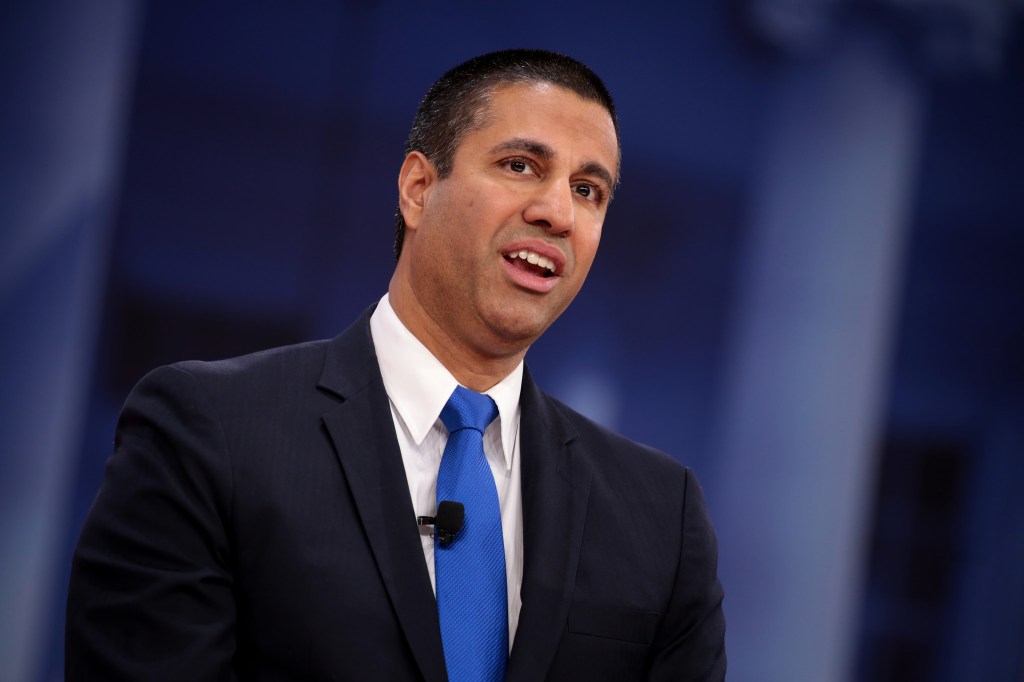The office of New York Attorney General Barbara Underwood has subpoenaed more than a dozen lobbying and policy groups tied to the telecom industry as it accelerates an inquiry into who was behind the millions of bogus comments that plagued the FCC’s net neutrality repeal.
The NY AG launched the investigation last November after it was discovered that an unknown party had flooded the FCC’s public comment system with numerous fake comments during the FCC’s open comment period, the public’s only serious opportunity to weigh in on the proposal.
While surveys suggest a bipartisan majority of Americans are in fierce opposition to the plan, the lion’s share of the bogus comments offered breathless support for the attack on the popular consumer protections.
Videos by VICE
In some instances the comments lifted the identities of real people (including my own) to voice phony support the plan. In other instances the efforts utilized a bot to flood the system with millions of fake and sometimes duplicate comments from deceased individuals, or identities lifted from what appears to be a hacked database of unknown origins.
The New York Times was first to report the expanded investigation, noting that the AGs subpoenas included targets such as Broadband for America, a lobbying coalition funded by major ISPs. The subpoena targets also include a few pro-net neutrality groups, such as consumer advocacy firm Free Press.
Underwood’s office confirmed the expanded inquiry when contacted by Motherboard.
“The FCC’s public comment process was corrupted by millions of fake comments—and our investigation found that as many at 9.53 million of those comments stole the identities of real people,” Underwood said in a statement.
“The law protects New Yorkers from deception and the misuse of their identities. And all Americans deserve a fair and transparent process for determining public policy that impacts their daily lives. My office will get to the bottom of what happened and hold accountable those responsible for using stolen identities to distort public opinion on net neutrality.”
The FCC did not respond to a request for comment.
According to an open letter to the FCC posted last November by the NY AG’s office, the FCC has routinely ignored AG requests for additional information that could help shed light on who was behind the bogus campaign. According to the AG’s office, the FCC rejected nine requests for server API and other, additional data between June and November of last year.
After my own identity was lifted and used to falsely support the repeal of net neutrality I reached out to the FCC and found the agency to be similarly apathetic. Journalists like Jason Prechtel have also sued the FCC after it ignored numerous Freedom Of Information Act requests looking for additional detail into the origins of the bogus comments.
In public interviews FCC boss Ajit Pai has repeatedly tried to claim that the public supported the repeal, despite a recent Stanford study highlighting how 99.7 percent of the original comments filed with the FCC opposed it.
Farmed, bogus comments have increasingly plagued numerous government proceedings over the last few years as industries seek to influence policy. Recent FOIA inquiries show the NFL utilized the tactic when it was trying to shape FCC media policy in 2014, and similar efforts have plagued regulatory efforts to rein in bad behavior in the financial sector.
While it’s obvious who benefited from the massive wholesale fraud the plagued the FCC’s net neutrality repeal, it remains less certain which group or groups were responsible, and whether any of them decided to leave a paper trail pointing to the original funding source.
More
From VICE
-

Screenshot: Sony Entertainment -

Rich Storry/Getty Images -

Screenshot: Sony Interactive Entertainment -

MEGA/Contributor/Getty Images
